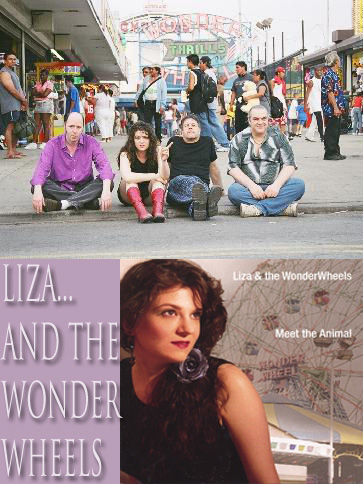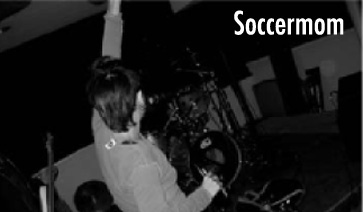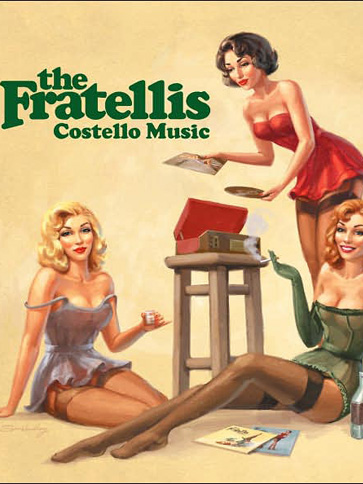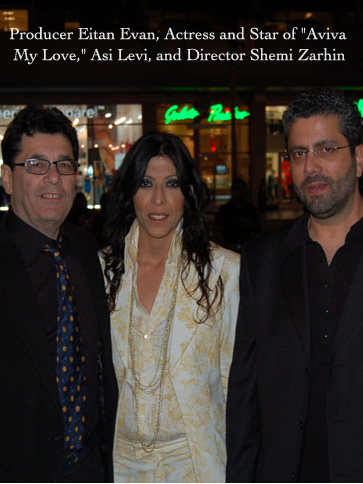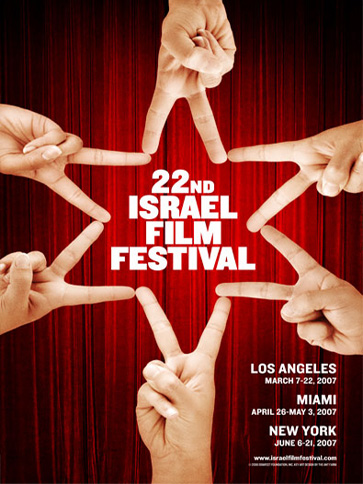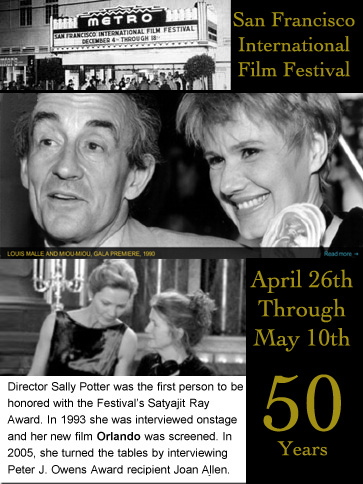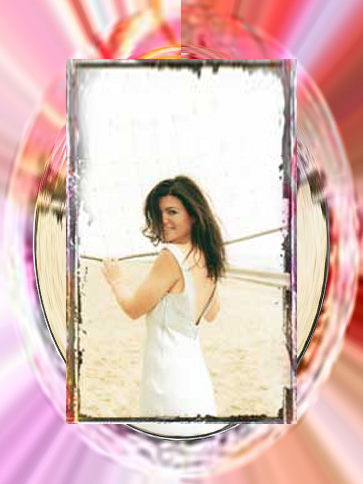A.i. (Artificial Intelligence) – Indie Hit Makers with a Retro-Futuristic Concept
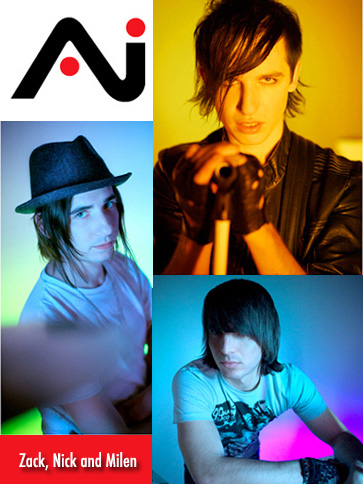 If musical or artistic talent is hereditary, then A.i.’s Nick and Zack Young’s cup overfloweth! Their great uncle, Joe Young, was one of the founders of ASCAP in 1914 and one of the great songwriters of Tin Pan Alley. He wrote over 500 songs, including such hits as Al Jolson’s “My Mammy,” “I’m Sittin’ on Top of the World,” “Dinah,” “Five Foot Two, Eyes of Blue,” and Frank Sinatra’s “You’re My Everything.” It’s no surprise that these brothers started making music when they were children—Zack played the drums, and Nick, the guitar. A few years after that, Nick and Zack formed the group A.i. They signed with DreamWorks Records, and in 2002 released their debut album Artificial Intelligence. They toured and eventually lost their keyboardist one night before a gig. Once back home in Los Angeles, and only a week before they were to hit the road, they found keyboardist Milen Kirov. The three musicians had a magical connection and immediately started writing.
If musical or artistic talent is hereditary, then A.i.’s Nick and Zack Young’s cup overfloweth! Their great uncle, Joe Young, was one of the founders of ASCAP in 1914 and one of the great songwriters of Tin Pan Alley. He wrote over 500 songs, including such hits as Al Jolson’s “My Mammy,” “I’m Sittin’ on Top of the World,” “Dinah,” “Five Foot Two, Eyes of Blue,” and Frank Sinatra’s “You’re My Everything.” It’s no surprise that these brothers started making music when they were children—Zack played the drums, and Nick, the guitar. A few years after that, Nick and Zack formed the group A.i. They signed with DreamWorks Records, and in 2002 released their debut album Artificial Intelligence. They toured and eventually lost their keyboardist one night before a gig. Once back home in Los Angeles, and only a week before they were to hit the road, they found keyboardist Milen Kirov. The three musicians had a magical connection and immediately started writing.
How did you guys come up with the name A.i.?
Nick: Actually, I came up with it a long time ago. Around 1996, I was in my dentist’s office and I was reading an article on artificial intelligence. Something about the name hit me. It was before the Spielberg movie and stuff. No one really knew what artificial intelligence was. We thought it was a really cool name. We decided to roll with it. It kind of represented what we were doing with our instruments and so forth.
How long have you guys been together?
Zack: Nick and I started the band around 1996, 1997. We hooked up with Milen four years ago, the fall of 2003. It’s almost a decade.
That’s a long time. So, I understand that you have an interesting background? You come from a filmmaking background?
Nick: Yeah, I guess. All our families are really creative. Our father’s a filmmaker, Robert M. Young. Our great uncle, Joe Young, wrote a bunch of songs in the early 1900s for all kinds of singers.
Milen: I am originally from Bulgaria, and my parents teach and perform Bulgarian music.
That’s interesting. Do you guys listen to a lot of that older music?
Zack: Just as of recently. Nick is kind of the Joe Young historian of the family. He’s kind of finding his roots. He’s been finding out a lot about our heritage—Joe Young, in particular. He was an amazing songwriter. He was the founder of ASCAP in 1914. He wrote a bunch of great songs. My dad used to sing us lots of the songs when we were kids.
Nick: We just kind of grew up not knowing what to do with ourselves other than making music.
So you’ve had a lot of support with your music, then?
Nick: Definitely. I think that all our parents have really been supportive in terms of letting us do what we want to do, really supportive in terms of the arts. I used to skateboard, and I think my mom was really happy when I started playing guitar. I wasn’t coming home all beat up and bruised and stuff.
Tell me about A.i. then. Tell me about your music, the sound, all that stuff .
We’re really excited about this new album called Sex and Robotsthat we’ve been working on. It’s really been this whole new vision for the band, kind of reinventing ourselves. Rich Mouser was an integral part of putting this album together. We had a lot of fun doing it, and we got to really experiment with all sorts of instruments and not be held back in the studio and just be able to do whatever we wanted to do. We’re really excited about this album.
Milen: I think the essence of A.i. is this co-existence with the human and the electronic, the robotic. Therefore, we called our album Sex and Robots. We use electronic instruments, but we play everything live; so, I think we have a huge variety of sounds to experiment with, and also make them come alive.
Nick: There are points where we are writing the music the way that cyber technology has gone in this whole Internet direction, and the way technology co-exists with us today. I’ve been really inspired to just play with these guys and use electronics and synthesizers, drum machines, and live instruments—whatever the song calls for to bring these songs to life.
Who is your audience?
I think the music speaks to a lot of different people. Our father—he’s old and he likes the music. We have young girls 15, 16. They respond to the music, sometimes 17, too. We design our music to speak to a wide audience, not pinpoint it directly. The girls are definitely more inspiring to sing to than guys. But if the guy’s listening to it, and he’s pretending to sing to his girlfriend, that’s okay too.
I heard your music, of course. I’m sure you’ve heard this comment a lot: It’s very retro ’80s. It reminds me of Devo and some other bands in the ’80s. Tell me how you decided to use that sound particularly.
When we were working with our producer Rich Mouser, we started going back to the great albums we loved, and we started listening to Genesis and INXS, Prince, and all sorts of things. We brought some stuff to Rich Mouser, and he heard it and immediately started playing us music that reminded him of our music. It kind of started off as an organic process—it wasn’t “let’s go retro!” All of our music is just coming from inspiration and making music that we like and what we want to hear. Real rock and roll is music that is searching and discovering something new. We started listening to stuff back when drum machines first came out and synthesizers were first coming out and people were experimenting. There were all these discoveries being made that people don’t do today because everything’s too simple today with computers … and everybody’s writing music on their computer. We always feel like we need to play live, and that’s one difference between us and other bands that play electronic music. We play live, and we don’t want to sit at a computer and play music. We need to be able to connect with the audience directly. We got inspired by the music of the 80s, the songwriting. We strive to write a good song, a good melody. I think that all those artists in the ’80s had these new, exciting instruments, synthesizers to work with, but they achieved writing great songs in the studio, using huge radio sounds but it was not only for the purpose of experimenting. The experiments were helping to create a beautiful melody or a good song all together. This is probably our biggest goal, and it gives us the biggest pleasure, that we can use any instrument that has been used in music in the past 30 years or so. We have acoustic instruments, we have analog instruments, we have digital instruments on the album. But in the end, with all of these instruments, all this experimentation, the result is a song with a beautiful melody.
That’s a good explanation. So who plays what in this trio?
My name is Milen and I play keyboards and a synth bass.
My name is Nick Young and I play guitar and sing.
And I am Zach Young and I play drums and electronic drums.
You guys used to be signed with DreamWorks? What happened with that?
We had a record that came out on DreamWorks in 2002. We put our album out in DreamWorks and they just didn’t really know what to do with us, or do anything with us. We got out of the situation with them, and we just found it really empowering to go into the studio and start making our second album. We had a different keyboard player before who ended up leaving the band, and we found Milen. We kind of needed to reinvent ourselves, kind of find that initial spark of why we like playing music together. That’s kind of where this whole new direction came from.
So you guys would call yourselves an Indie band, then?
Yeah, I would say so.
I heard you’ve had some success. You’ve been played a couple of times on KROQ. Tell us about that.
Cat Corbit at KROQ “Locals Only” show started playing one of our songs, “Tell Me You Love Me.” We ended up getting played on KROQ. We were on a show called “Should I Stay or Should I Go?” on 97.1, which was really scary at first ’cause these radio people are just so quick, talking and stuff—it actually went really well. Callers were calling in saying [whether or not they liked the song or the band]. We had great response from people. We played the first two songs on the record, “Hey Now” and “Tell Me You Love Me.” People loved them both. The challenge now is just for us to get out there and start playing night after night. We really just want to bring this music to people in person. From the beginning, we’ve tried to stay away from [using sequencers and drum machines] because we don’t want to be controlled—if we want to do a chorus twice the length or do a jam out, we’re not controlled by [any] machines. Even though we’re using a lot of cutting-edge technology within our instruments, we try and figure out ways to keep it live as much as possible. So, there’s not sequencing or anything like that—it’s all played live.
It’s interesting because it does have the electronic sound to it, and I saw the live show. A couple of times during your show, I thought it sounded so electronic, but I saw you slamming and hitting on the drum and thought, “Wait a minute, that’s coming from him!”
Zack: That’s definitely something we’ve done in terms of my drum set. We’ve done a lot of experimenting over the years and figured out ways to play a lot of these sounds. Because we used to go to shows and we’d go to a rave and we’d see all these people dancing and we’d see a DJ playing. We love a lot of the aspects of the music, but we were missing the live element of it—we’re musicians to begin with. We try to figure out a way where we could bring this music to life in a certain way and not be controlled by machines.
That’s unique. Tell me. What is the highest high that you’ve ever had while you’ve been in this prospect of Indie music.
Every time we play, that’s the highest high, knowing that moment, playing the music and getting that feeling, you know. That elevated feeling is the best. It doesn’t matter if we’re rehearsing in this room (their rehearsal studio in Los Angeles) or if we’re on stage—every new day, every new performance, every new song that we create, and just being in that moment of creating.
Have there ever been any lows?
Definitely, there have been lows. Luckily, we have been fortunate enough not to have anything catastrophic happen to any of us. There are times when we’re working on a song and we can’t figure it out—things don’t seem to click. There’s writer’s block—whatever you want to call it. There have been times where it’s definitely been hard, and especially being an independent band. There are a lot of challenges. There have been hard times, but the times when we all play together, we forget about everything else. That’s the best time.
Now I have one more question for you. As a band coming up, and trying to break into this crazy music industry, do you have any advice for a band whose trying to break in?
We’re still trying to figure out our own strategy. If you’re in it for a career, you have to love it. So, have fun doing it. I think the world in general can get pretty dry. A lot of lube and a lot of Viagra, and I think that you’re liable to break through the barriers. If you’re in music, for the wrong reasons … my advice is keep at it. Have fun. Keep writing. Keep playing. Just keep getting better. I think people will notice you.
Milen: Even though you might think you choose music, really, music chooses you. Business-minded people can help you with advice, but the main advice for a musician is just keep playing.
Nick Young, vocals, guitar
Milen Kirov, keyboards, synth bass
Zack Young, acoustic/electronic drums
Interviewed by Kaylene Peoples
Transcribed by Aiza Cayanan
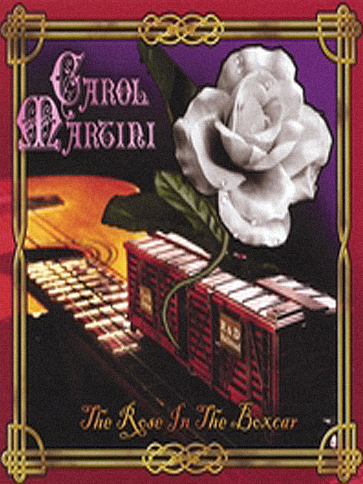 Carol Martini has been a songwriter since she was a child. She started out with the violin, and because she is a songwriter, settled on the acoustic guitar. The Rose in the Boxcar is her fourth independent CD, which is a compilation of her original material.
Carol Martini has been a songwriter since she was a child. She started out with the violin, and because she is a songwriter, settled on the acoustic guitar. The Rose in the Boxcar is her fourth independent CD, which is a compilation of her original material.